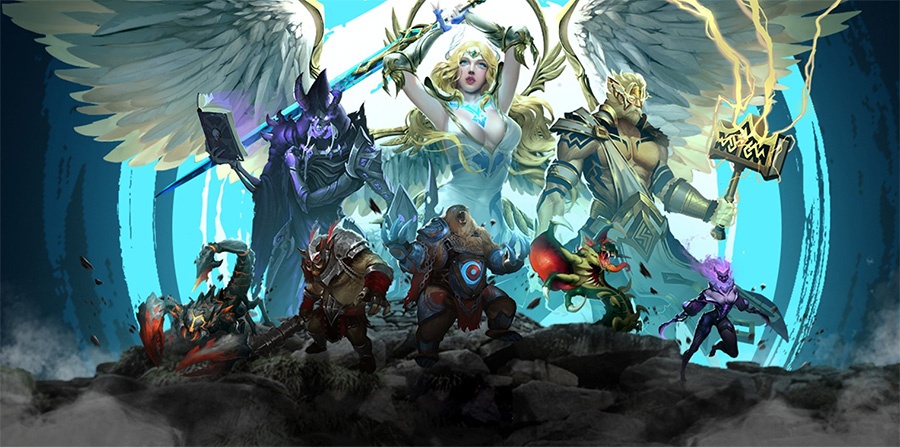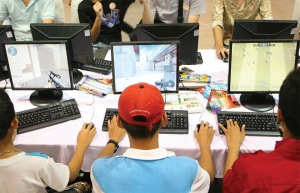Gaming publishers shy away from tax proposition
For the second time in the past seven years, online games have been proposed to be included in a list of goods subject to special consumption tax (SCT), with the Ministry of Finance (MoF) collecting public opinions on the proposal to develop the revised law on SCT.
 |
| Gaming publishers shy away from tax proposition - illustration photo/ Source: Fota |
According to the MoF, the online game industry worldwide generates large revenues and high profits compared with other types of business and attracts customers of all classes and ages, especially younger people. The ministry said that it is necessary to study and add “online video game service businesses” to the list of goods subject to excise tax, with a reasonable tax rate to ensure the restriction of this service.
The proposal was immediately opposed by businesses and experts, who said the imposition of taxes will limit the competitiveness of domestic enterprises compared to competitors from abroad.
Le Xuan Hoa, vice president of the Vietnam Software and IT Services Association, said that to promote the development of the game industry, the country should introduce policies to encourage investment and nurture projects instead of exploiting them.
“Licensed games lose ground to unauthorised games due to plenty of regulatory hurdles, while most of the stereotypes surrounding gaming stem from pirated or unlicensed games,” Hoa said.
He added that half of online game revenue in Vietnam is flowing abroad, mainly to Singapore. Game production enterprises in the city-state do not have to apply for licences to provide video game services and script content for every game product, which is costly.
In the first three years of operation, newly established companies in Singapore enjoy 75 per cent of exemption for the first taxable income of S$100,000 ($75,160) and 50 per cent on the next $75,160. In addition, they can participate in the partial tax exemption scheme for a fourth year.
Meanwhile, game producers based in Vietnam are subject to many taxes, including 10 per cent of VAT, 10 per cent of contractor tax when cooperating with partners outside of Vietnam, 5-35 per cent of personal income tax, and 20 per cent of corporate income tax. In Singapore, they pay only 17 per cent of the latter.
SohaGame director Nguyen Thuy Dung said that most Vietnamese game businesses currently have relatively low revenue and profits. Many have to dissolve or go bankrupt, affecting other businesses in the production, publishing, and distribution chain, while the top 10 game firms in Vietnam have had to downsize their staff by at least 40 per cent. Out of a total of 248 licensed enterprises, only about 20 are officially operating.
“The profit after tax of Vietnam’s game industry is only 3-5 per cent on revenue, which is low compared to other industries in the economy. The revenue of the entire Vietnamese game industry is currently about $782 million, but only 22 per cent of this is under the management of state management agencies. The remaining revenue belongs to businesses not based in Vietnam that do not have any obligations to the government,” Dung said.
Dung added that forcing SCT on the industry may increase costs for users and destroy the competitiveness of domestic licensed games. Consequently, it can cause Vietnamese game businesses to face a decline in revenue.
Vietnam’s game industry is expected to earn revenue of $1 billion by 2025, but this goal will also continue to face many challenges if the proposed excise tax on online games is passed.
According to Phan Duc Hieu, standing member of the National Assembly Economic Committee, the draft from the MoF needs to clarify the effectiveness of excise tax on online games, from which to decide whether to intervene or not.
“In addition, the draft should also consider a solution to increase tax collection with cross-border service providers, instead of targeting Vietnamese businesses and consumers, with the risk of slowing down the development of the Vietnamese game industry,” Hieu explained.
Dau Anh Tuan, deputy general secretary of the Vietnam Chamber of Commerce and Industry, said that it is necessary to consider the game industry as a field of production and export of digital content like movies and art.
“Currently, no country has SCT on online games. If so, some countries will tax the player’s income from games, such as buying and selling virtual assets. For the best control, it is advisable to focus on promoting good content, repelling harmful, unauthorised content,” Tuan said.
 | Vietnam embracing a brand new reality in gaming industry For mixed reality technology to nurture and sustain growth momentum in Vietnam’s gaming industry, developers hope to narrow the gap with users by offering them the correct incentives and creating strong engagement. |
 | Legal bottlenecks must be resolved for Vietnam’s online gaming arena to win Online game product developers in Vietnam are facing many legal problems related to their activities. The first is that the current regulations on licensing procedures for online games are often very complicated and lengthy. |
 | Serious business ahead for gaming Gaming in Vietnam continues to be exceedingly popular, but developers are still in a weak position due to outdated regulations. |
 | Foreign resources and market know-how give rise to gaming The market understanding of Vietnamese online game developers combined with the resources of foreign partners are expected to create momentum for the country’s online gaming industry. |
What the stars mean:
★ Poor ★ ★ Promising ★★★ Good ★★★★ Very good ★★★★★ Exceptional
Themes: Digital Transformation
- PM sets five key tasks to accelerate sci-tech development
- Ho Chi Minh City launches plan for innovation and digital transformation
- Dassault Systèmes and Nvidia to build platform powering virtual twins
- Sci-tech sector sees January revenue growth of 23 per cent
- Advanced semiconductor testing and packaging plant to become operational in 2027
Related Contents
Latest News
More News
- Ho Chi Minh City launches plan for innovation and digital transformation (February 25, 2026 | 09:00)
- Myriad risks ahead, but ones Vietnam can confront (February 20, 2026 | 15:02)
- Vietnam making the leap into AI and semiconductors (February 20, 2026 | 09:37)
- Funding must be activated for semiconductor success (February 20, 2026 | 09:20)
- Resilience as new benchmark for smarter infrastructure (February 19, 2026 | 20:35)
- A golden time to shine within ASEAN (February 19, 2026 | 20:22)
- Vietnam’s pivotal year for advancing sustainability (February 19, 2026 | 08:44)
- Strengthening the core role of industry and trade (February 19, 2026 | 08:35)
- Future orientations for healthcare improvements (February 19, 2026 | 08:29)
- Infrastructure orientations suitable for a new chapter (February 19, 2026 | 08:15)

 Tag:
Tag:



















 Mobile Version
Mobile Version